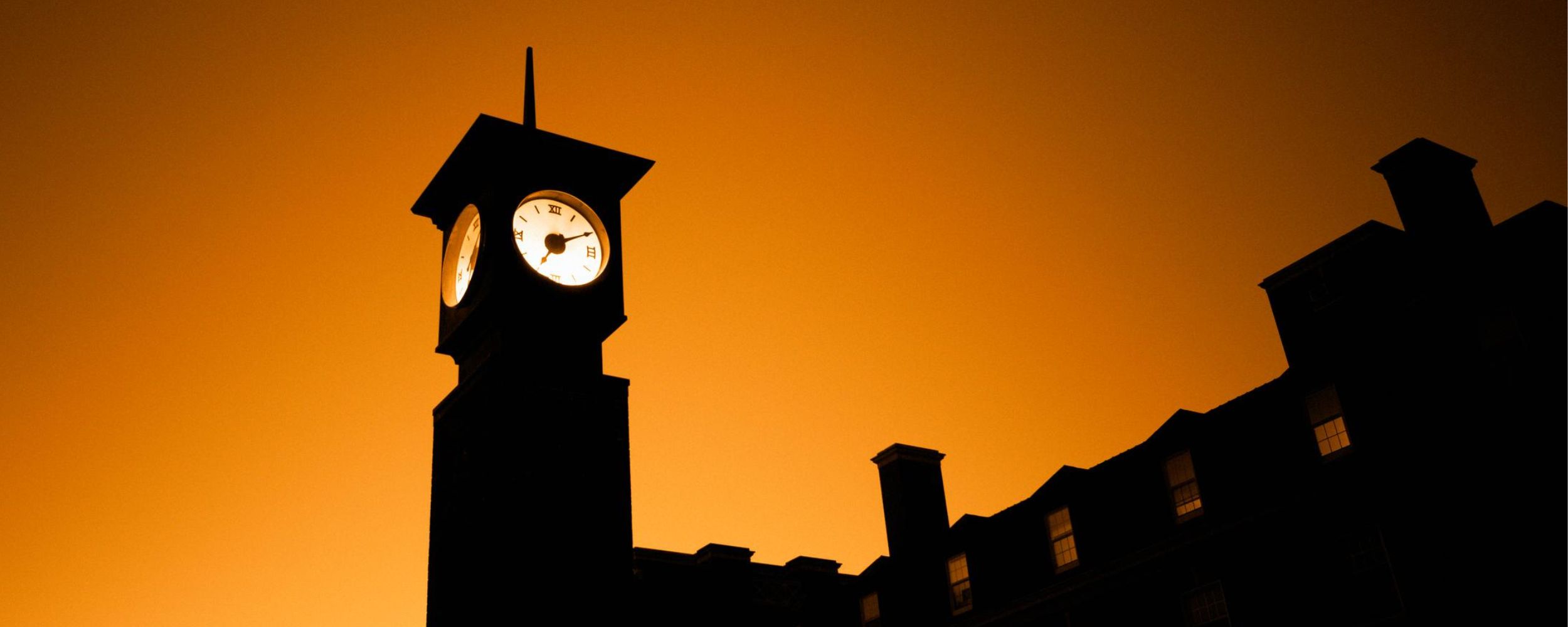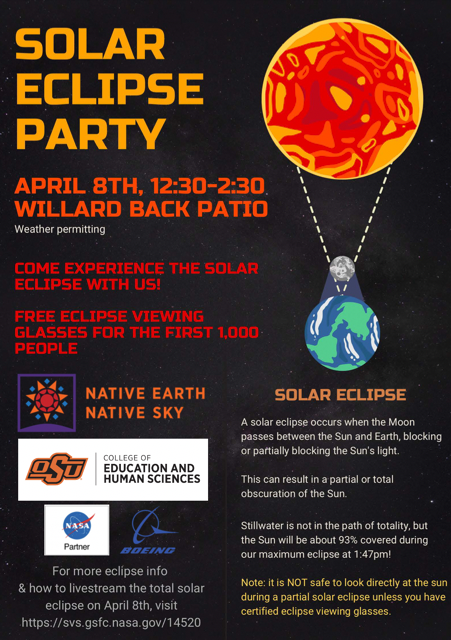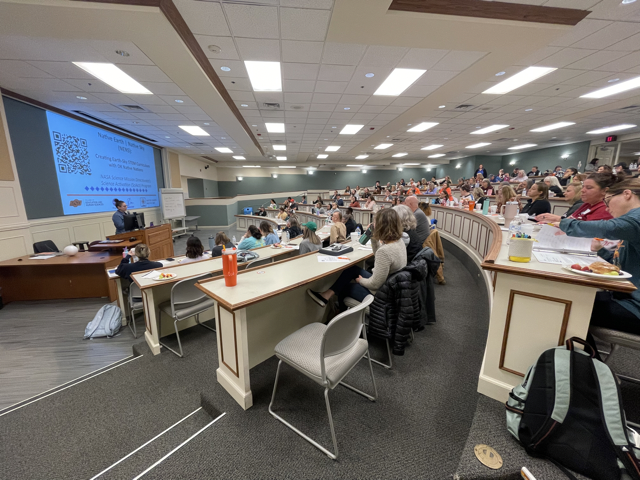
OSU combines culture and science for solar eclipse
Friday, March 15, 2024
Media Contact: Christy Lang | Manager, Marketing & Communications | 405-744-9740 | christy.lang@okstate.edu
Oklahoma State University’s Native Earth | Native Sky is offering resources for Oklahoma educators and students ahead of its solar eclipse watch party on April 8.

The event will last for the duration of the eclipse, from 12:30 to 2:30 p.m. At 1:27 p.m., the eclipse will reach maximum coverage and cover 93% of the sun. NENS program coordinator Kena Hawkins said the watch party will allow students to experience the near-total solar eclipse in a safe and engaging environment.
“We won't have another close-to-totality experience until for another 20 years from now,” Hawkins said. “We really want (students) to not be afraid of the eclipse and to engage with it and experience it.”
Educators and program coordinators will be at the watch party on Willard Hall’s South Patio to answer questions and provide unique opportunities to experience the eclipse. Hawkins said NENS is giving away free eclipse glasses to the first 1,000 attendees that they may keep after the event.
“You can look at the sun with these glasses any day,” Hawkins said. “You can go outside and look for sunspots. You can look and see if there’s a sunburst going on.
“We don't want people to just be like, ‘OK, that was cool,’ and toss them in the trash. You can even donate them to a local library or community center or elementary school.”
Although the eclipse watch party is for OSU students, faculty and staff, much of NENS’ mission is geared toward K-12 education. Native Earth | Native Sky is a $4 million cooperative agreement between OSU and NASA that aims to increase interest and engagement in science, technology, engineering and mathematics among young students from the Cherokee, Choctaw and Chickasaw nations through culturally integrated curricula.
Hawkins said NENS aims to help teachers bridge the gap between Native American culture and science so each student can gain a comprehensive understanding of phenomena in stories told across generations in Oklahoma.
“We want any teacher that maybe has students who are Native American to feel comfortable with the details in that curriculum to expose their kids, rightfully, to different things in Oklahoma,” Hawkins said. “That's what this land is. There's native land everywhere.”
In February, NENS hosted a professional development workshop in Stillwater for 110 K-12 educators. NENS provided these teachers with resources and activities to prepare for the eclipse from NENS, NASA and the National Science Teaching Association.
Hawkins said the workshop provided teachers with several options to help their students experience the eclipse, like listening for birds and insects, keeping track of temperature changes or observing shadows. They also discussed Native American stories relating to eclipses, like the Choctaw’s story about Tvshka and Walo, two brothers who chased the sun.
Each educator also received two books, “A Few Beautiful Minutes” and “Totality!” for their school libraries, new curriculum materials and a classroom supply of solar eclipse glasses, to help their students safely learn about and experience the eclipse. Hawkins said the workshops provide an opportunity to build relationships with educators across the state while also sharing a passion for science with students.
“We’re relationships-first,” Hawkins said. “Because we have that partnership with NASA, we just have these awesome resources. We were like, ‘Well, since we have them, we can give them (to students).”
 NENS will host similar events for Stillwater elementary schools in the coming weeks.
Through their workshops, Hawkins said NENS will have provided hundreds of teachers
with valuable educational materials and given away 3,200 pairs of eclipse glasses
to students and staff.
NENS will host similar events for Stillwater elementary schools in the coming weeks.
Through their workshops, Hawkins said NENS will have provided hundreds of teachers
with valuable educational materials and given away 3,200 pairs of eclipse glasses
to students and staff.
Hawkins said the eclipse allows NENS to help provide students with an unforgettable and educational experience while telling the stories of Native American tribes.
“I think there’s just a love of science, and we want people to be involved in the eclipse, Hawkins said. “This solar eclipse is getting a lot of attention because the solar eclipse is awesome, but our foundation is the tribes that we work with and our relationships with the students. And we get to combine those right now.”
Questions about the April 8 Solar Eclipse watch party can be directed to Kena Hawkins (kena.hawkins@okstate.edu).
Story By: Jessica Pearce | jessica.c.pearce@okstate.edu
